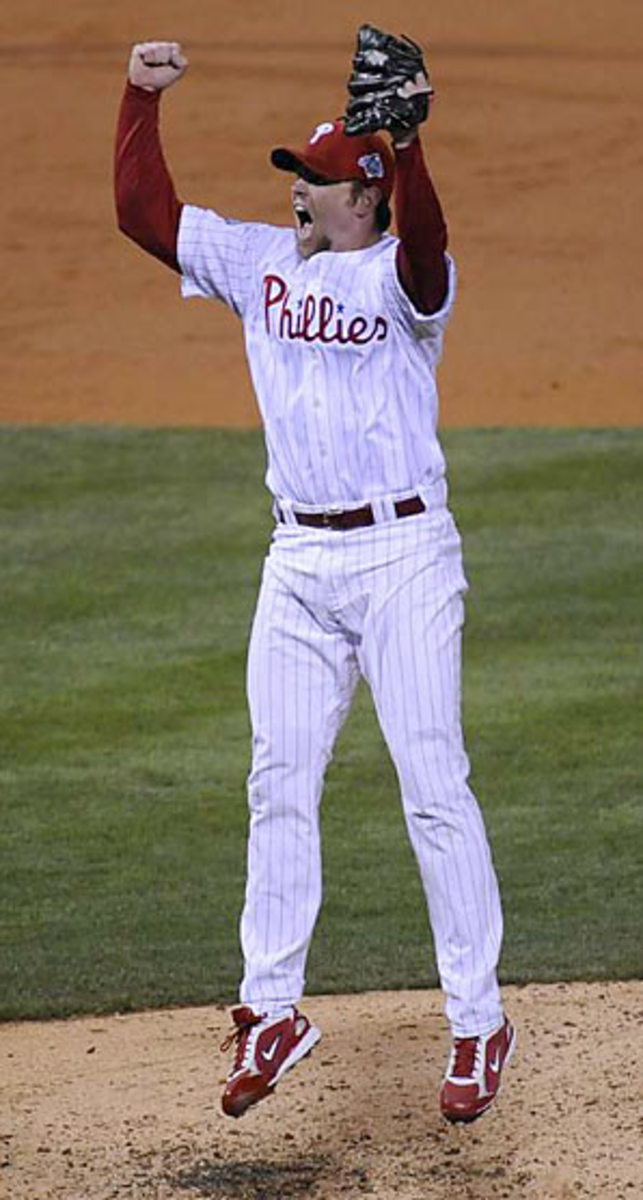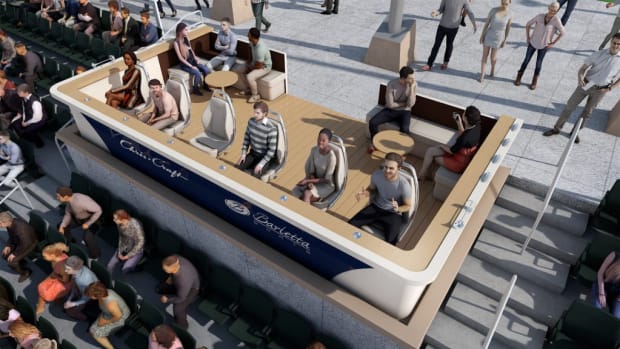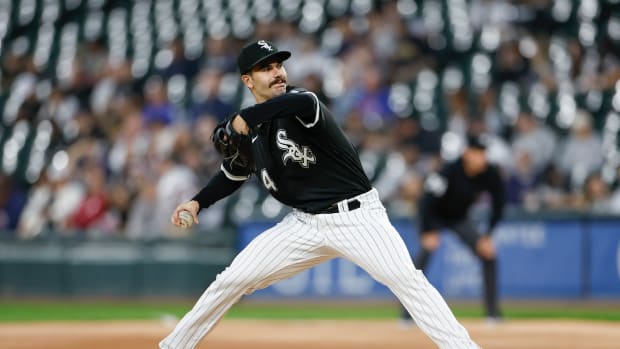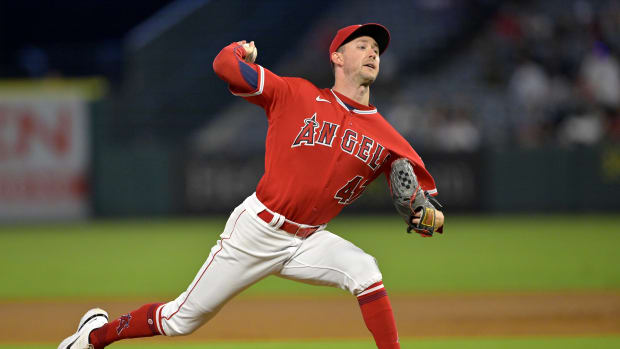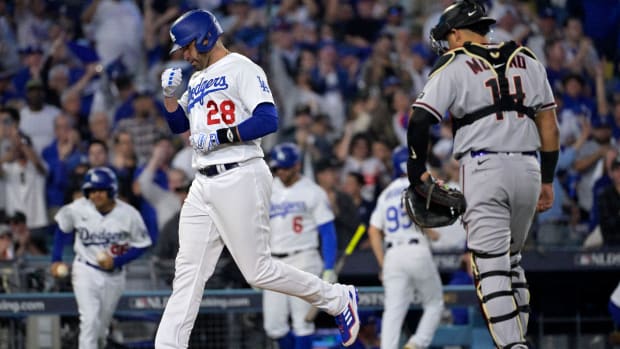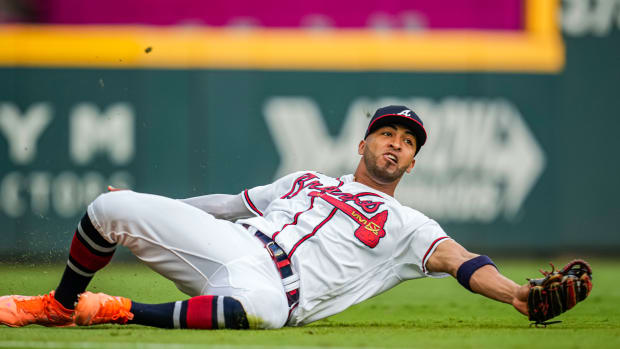Unconventional Wisdom: Future is bright for Rays, Phillies
The 2008 Phillies were not a fluke. They were the second-best team in the National League by record and by run differential, and a shade behind the Mets and Dodgers in third-order record. Their front-line talent, with a very good top six, No. 1 starter and closer, matched up with anyone's in the league. This came on the heels of a 2007 season in which they won the NL East with the second-best record and fourth-best run differential in the league. The story has been that the Mets collapsed, but the Phillies have closed 13-4 and 13-3 the last two years. They're not the 2006 Cardinals, backing into the postseason and getting lucky. They went 11-3 in October and were never challenged in any series.
They're not the 2003 Marlins, either. The core of this team is locked up for 2009, save for left fielder Pat Burrell. Burrell could return -- the glow of a championship tends to carry over to contract negotiations -- but he's replaceable, a six-win left fielder on the wrong side of 30, due to be paid for his past production as he slips from that level.
Burrell is representative of this team: a homegrown player right around the peak of his career. He, Brett Myers, Chase Utley and Cole Hamels are all Phillies' No. 1 picks, while Jimmy Rollins and Ryan Howard were drafted in the top five rounds. Ryan Madson was a ninth-round selection. Every one of those players but Hamels was drafted under the reign of Mike Arbuckle as scouting director. With all due respect to Pat Gillick, the Phillies you watched over the last month were built by Arbuckle.
With Gillick on his way out as GM, the reins of this team will be handed, in all likelihood, to Ruben Amaro Jr. A Phillie since his playing days, Amaro isn't going to upset the apple cart. He's likely to continue what Arbuckle and Gillick started, keeping the core in place while trying to make smart, cost-effective acquisitions around it. Amaro watched both Gillick and former Phillies GM Ed Wade work, and he has seen free agency be more problem than solution. Savvy fans will notice a complete lack of Adam Eaton and Tom Gordon this October, two players who combined for 14 percent of the payroll but did not make the postseason roster due to performance and health issues. Amaro will likely avoid that type of contract.
Of course, it won't be quite so simple, especially in the short term. As with any successful team the Phillies have had a lot of things go right the past two seasons, and not terribly much go wrong. The confluence of peaks of all those high picks is part design, part serendipity. The low-profile acquisitions of Shane Victorino, Jayson Werth and J.C. Romero helped put the "Stand Pat" nickname to rest. The Phillies have been healthy, and the injuries they have had have generally served to make them better. A big gamble on Brad Lidge paid off in spades. For the second year in a row it's hard to find a Phillie, especially a position player, who disappointed the team. That's good management...and good fortune.
While it's possible that their luck could hold for a third straight year, and they'll certainly be the favorite or co-favorite in the NL East depending on whom the Mets acquire, the most likely scenario is that the Phillies see enough regression from their regulars to bring them back under 90 wins. Werth, Victorino, Lidge, Utley, Jamie Moyer and a number of relievers all had years at the top of their range, and should collectively fall off. A year ago you could say that the Phillies would be hard-pressed to be better at any position than they were in 2007. Well, that's also the case looking ahead to '09, especially since the team's weakest links are under control for next season and will almost certainly reclaim their lineup spots.
Regardless of how 2009 plays out, however, the Phillies are in good shape. Once one of the NL's sad-sack franchises, and a doormat as recently as the second half of the 1990s, the Phillies have made the leap to their destiny: large-market, high-revenue success story. The Phillies have won at least 80 games in every season since 2001 and have been at least fringe postseason contenders for most of that time, culminating last night with their first world championship since 1980. They've reached the space occupied by the Angels, where success is the norm and failures are brief, shallow departures from extended runs of contention, peaking with dogpiles on the mound.
As optimistic as that is, it pales in comparison to what the future holds for the Tampa Bay Rays. They arrived a year early, remember, winning 97 games and getting to the World Series when even the wild-eyed optimists projected 87 wins and third place. Even more so than the Phillies, the Rays are likely to regress in 2009, as the massive defensive improvement that drove the '08 team's success will be hard to sustain. The offense, which was surprisingly good in the face of the emphasis on defense, will be, at best, a little better next season. The Rays don't have the luxury of decline -- even a small one will leave them looking up at at least two of their rivals in sports' toughest division.
In the big picture, though, the Rays may have the brightest future of any franchise is the game. They have a stunning amount of star-caliber talent on hand, with a farm system that has one more wave of potential standouts on the way. Their front office, in place just three seasons, is worthy of mention with that of the Red Sox in terms of its intelligence and professionalism. The Rays aren't going to hamstring themselves with bad contracts, or fail to develop their young pitching, or fall in love with the short-term contributors who helped them get to the World Series. They're just going to continue building around an amazing core. And if '09 isn't their year, that will just make it easier to classify the '10s as the Rays Decade. They're going to play the last game of the year more than a few times.






























